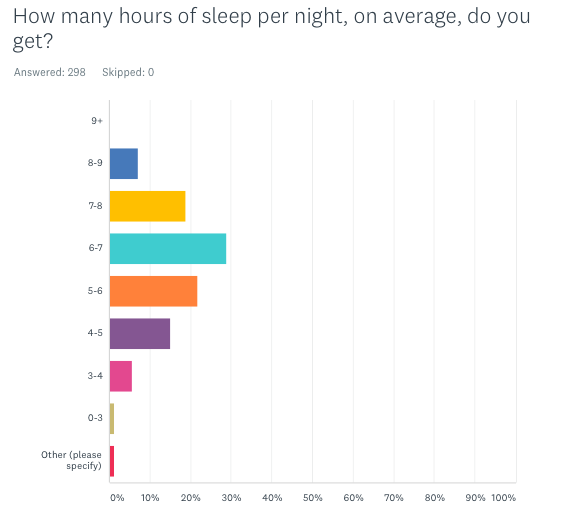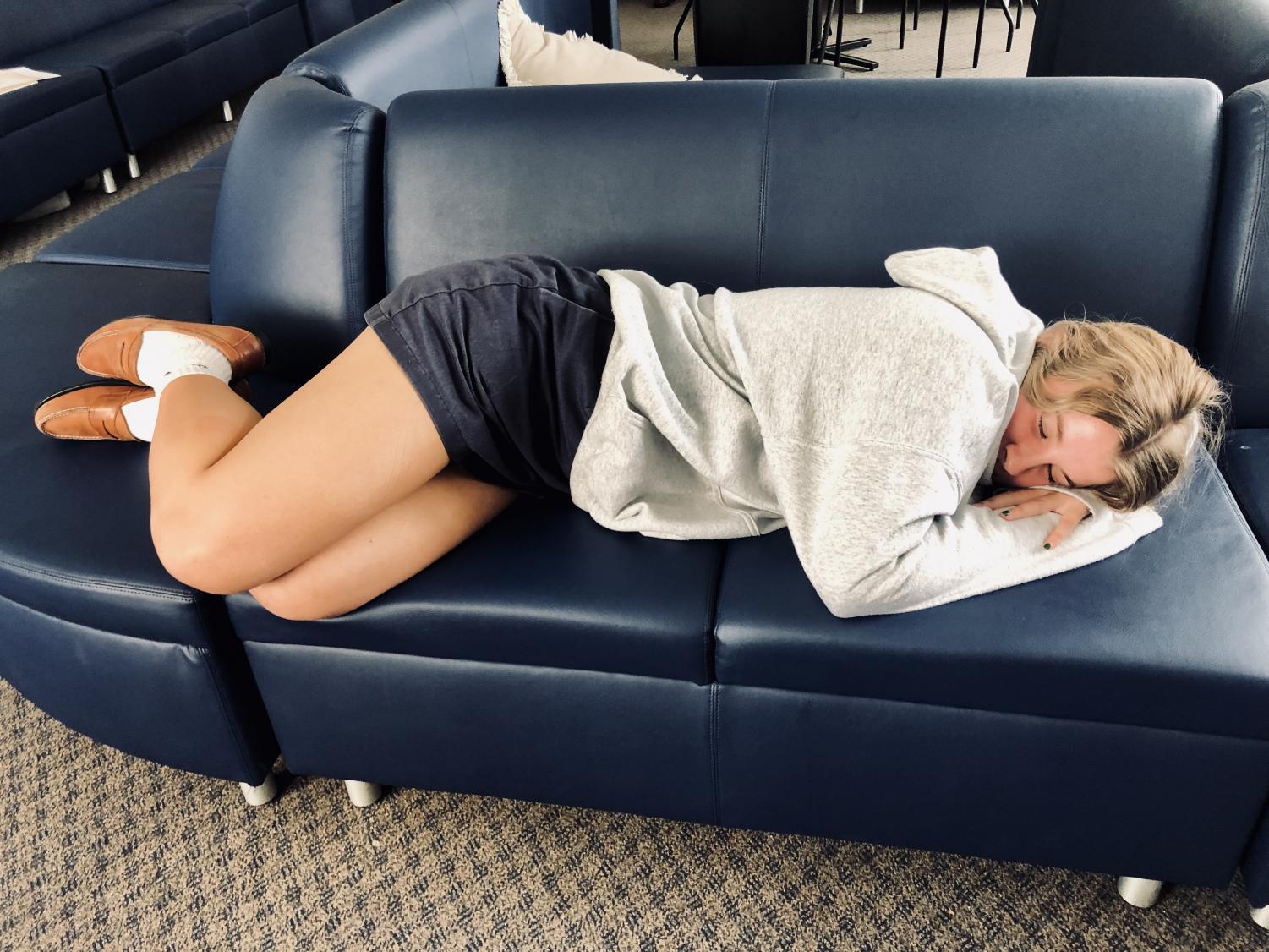Students and Sleep: the Importance of Rest for Developing Teens
October 17, 2019
The importance of sleep is a topic brought up often among child specialists and concerned parents. It is well known that sleep is vital to the proper function of the body, but how crucial is it?
According to the National Sleep Foundation, high schoolers – ages 14 to 17 – are recommended 8-10 hours of sleep per night. However, a majority of American teenagers aren’t getting the necessary amount. According to an Academy survey, on average the student body receives is 5-7 hours of sleep. Among AHN 9th graders, the average amount of sleep is 7-8 hours, 10th graders 6-7 hours, 11th graders 6-7 hours, and 12th graders 5-6 hours.

“Some students are struggling to stay awake and I think that sometimes their performace, particularly for a set, is imparied due to lack of sleep. When we were doing multiple choice this morning, there were students saying that they were really tired and that that was impacting their ability to focus,” said English teacher Allison Jussaume.
These statistics do not stray far from the national average. According to the National Sleep Foundation, only 15% of teens reported sleeping 8 1/2 hours on school nights.
Although this may be common, it is not healthy. A lack of sleep contributes to a loss of the ability to learn well, behave more impulsively, and leads to weight gain and skin problems.
Sleep may be vital, but it seems as though its harder for teenagers to acquire. According to the National Sleep Foundation, “Biological sleep patterns shift toward later times for both sleeping and waking during adolescence — meaning it is natural to not be able to fall asleep before 11:00 pm.”
A lack of sleep not only results from overbearing amounts of homework, but filled schedules. In the Academy survey previously mentioned, students report losing sleep from a long commutes, sports practices, and an inability to fall asleep at night.
“There’s a lot of homework, a lot of stress, a lot of extracurricular activities including sports, so by the time you get home and start your homework it’s already pretty late. Then you have to go to bed whenever you finish and get up again and do it the next day,” said Rachel Brown (’20).
When I educate on teen sleep, I usually provide this statement on personal vs. societal responsibility: "Parents and teens are responsible for healthy bed times, and schools need to be responsible for healthy wake times." 1 am is not a good bedtime. 5 am is not a good wake time.
— Stacy Simera (@StacySimera) October 10, 2019
Sleep is considered a priority, as essential to your brain as food and water are to your body. Therefore, sleep should be the main concern with enough time allocated to it throughout the week. Solutions for getting an adequate amount of sleep include:
- Sticking to a night routine – Getting homework done as soon as possible, eating dinner, and staying off of your phone at least an hour before bed helps your body develop a more natural sleep cycle and allows you to get better rest.
- Keeping a sleep diary – Tracking the amount of sleep you get each night and noting any disturbances or distractions allows you to find patterns that correlate to inadequate sleep.
- Taking naps – Naps allow your body to briefly recover if you did not get much sleep during the night. Naps are best when they last between 20 and 30 minutes, any more time will cause drowsiness and affect your nighttime sleep schedule.
- Making your bedroom a sleep haven – Keeping your bedroom distraction-free and soothing helps your body retire more easily at night. Doing homework in another room will also help you associate your bedroom with rest rather than work.
- Avoiding caffeine close to bedtime – Caffeine late at night will interfere with your ability to fall asleep. If you need extra energy to get work done, it is better to intake caffeine earlier in the day so that it might wear off by the time you go to sleep. Otherwise, try and supplement a lack of sleep with naps.
- Starting school later – Although this is not in the control of the student body, it is encouraged that AHN students take advantage of the late starts on Wednesdays to get more sleep. Later school starts help make up for the amount of time students spend doing homework at night and is beneficial for students who have longer commutes.

